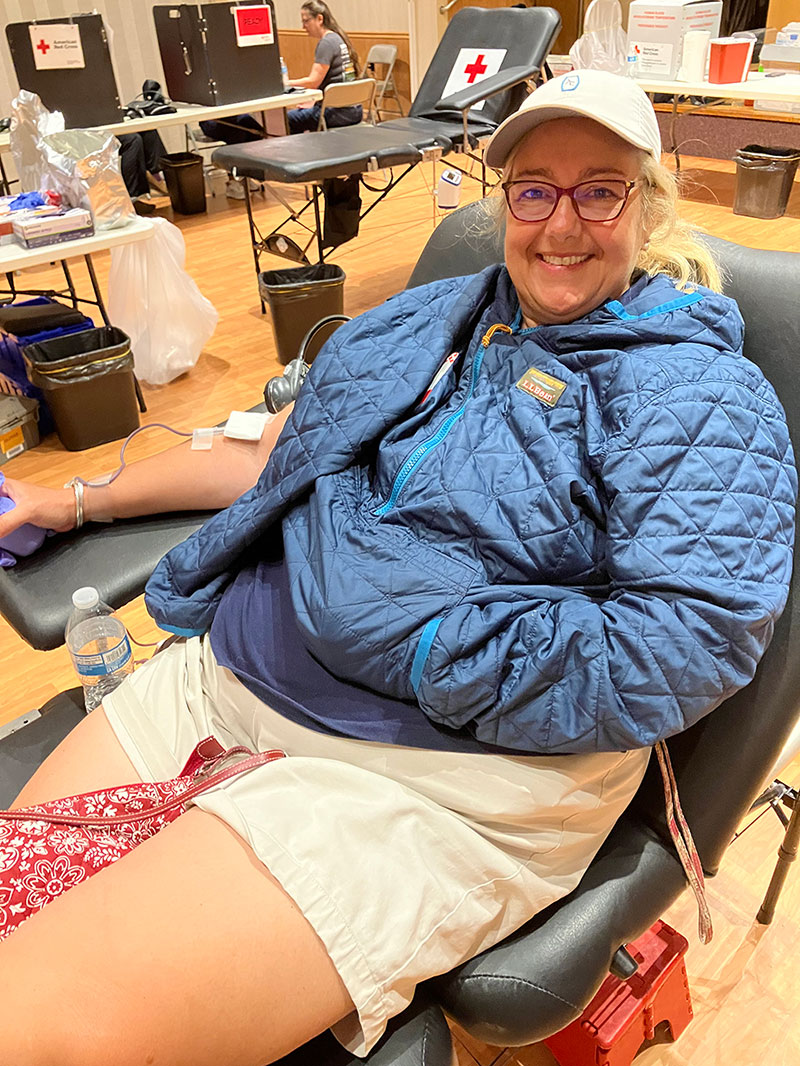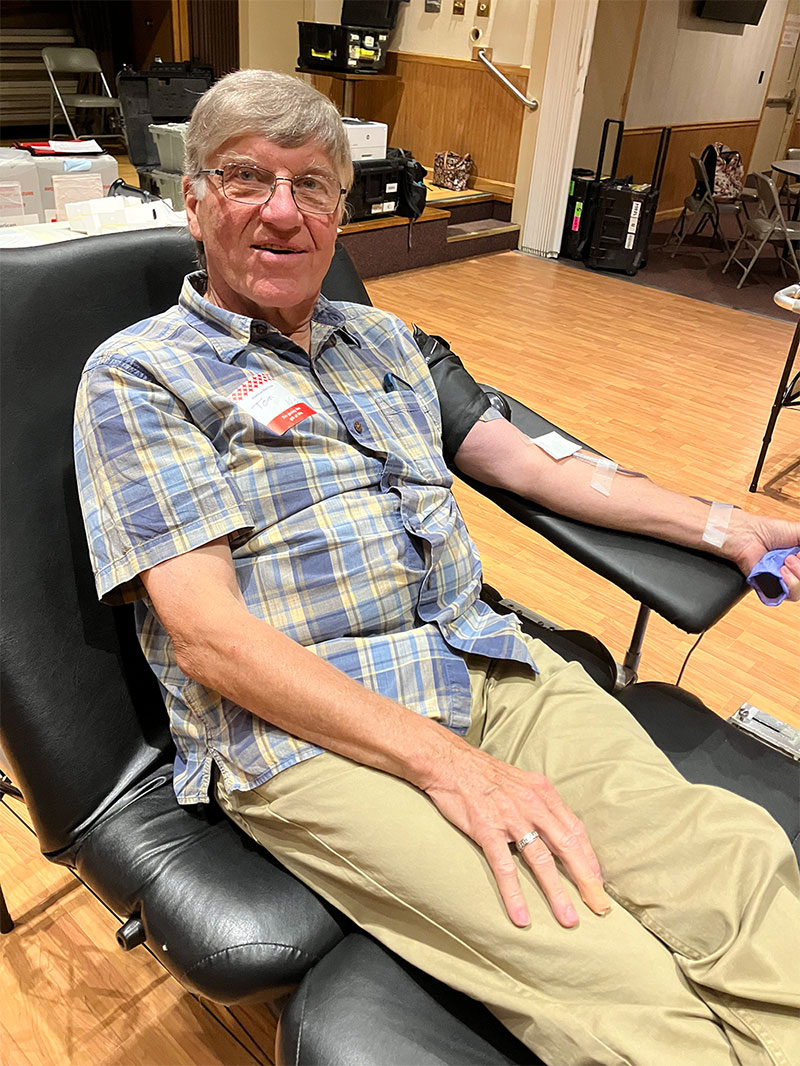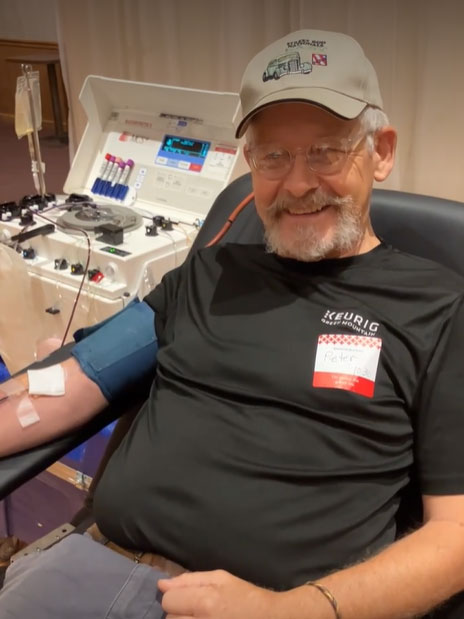


By Dan Dowling, Red Cross Regional Communications Manager
“I'm very fortunate that I didn't lose anything other than our yard and our garden. Now we have to just clean it all up.”
Paige Emory, a resident of Williamstown, Vermont, rolled up her sleeve Monday. It's the first opportunity she's had to donate blood since catastrophic flooding devastated much of Vermont two weeks ago. On July 10, five to eight inches of rain in a very short period caused flashed flooding that damaged or destroyed hundreds of homes across Vermont.
“We have a stream at the end of our property that drops down and has a beautiful waterfall. The volume of water came and carried all of the debris from the road above and the dairy farm,” said Emory. “We had about three feet of water in the basement. Thankfully after (Tropical Storm) Irene we decided not to store anything down there anymore. It's an 1840s farmhouse so it's got the granite slabs as the foundation, so we had lots of water coming through.”
Barre, Vermont was hit particularly hard by the storm. The community is still mucking out and picking up the pieces. However, the need for blood doesn't stop for a natural disaster, and despite the massive clean-up effort underway, Barre moved forward with its first blood drive since the flood. Pre-storm it was scheduled to be held in the Barre Auditorium, but since that is still being used as a Red Cross shelter for storm survivors, the drive was moved to the Barre Canadian Club. A few dozen donors turned out to help patients in need.
Emory has been donating blood since college and says she always schedules an appointment when she knows there is a need.
The American Red Cross has experienced a decrease in blood and platelet donations throughout the summer. To prevent a looming blood shortage, we need donors to schedule appointments to give blood in the coming weeks.
Montpelier resident Tom McKone had an appointment to give too, reaching a significant milestone -- eight gallons of donated blood! Though he was not directly affected by the flooding, his beloved hometown took a big hit.
“There was a lot of damage in Montpelier. It was similar to Irene. For Montpelier, I think it was actually worse,” said McKone.
The 40-year resident of Vermont's capital city remarked that the heavy rain is rare for the region.
Two weeks earlier, as the rivers were just starting to jump their banks and spill into the streets, a team of Red Cross phlebotomists were forced to cut their blood drive short and escape to the higher ground. The team not only protected the blood they'd collected earlier in the day, but made it to a nearby Red Cross shelter where they spent the night helping disaster volunteers aid evacuees.
Barre resident and blood donor Peter Wark said the impact the Red Cross and partner agencies are making in his area is amazing.
“It’s been really torn apart,” said Wark. “There’s been a lot of good volunteers coming down to help out, but the town is a mess.”
Giving blood is an excellent way for those in unaffected areas to help out. Right now, the Red Cross especially needs type O negative, type O positive and type B negative blood donors, as well as platelet donors.
Donors of all blood types can schedule an appointment to give by downloading the Red Cross Blood Donor App, visiting RedCrossBlood.org or calling 1-800-RED CROSS (1-800-733-2767).
Support all the urgent humanitarian needs of the American Red Cross.
Find a drive and schedule a blood donation appointment today.
Your time and talent can make a real difference in people’s lives. Discover the role that's right for you and join us today!